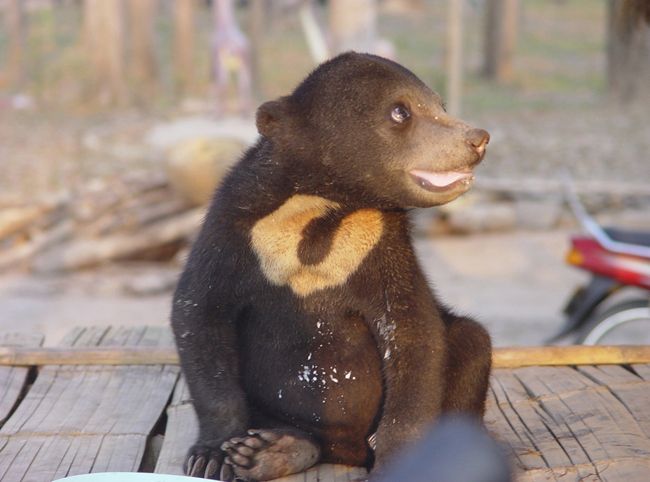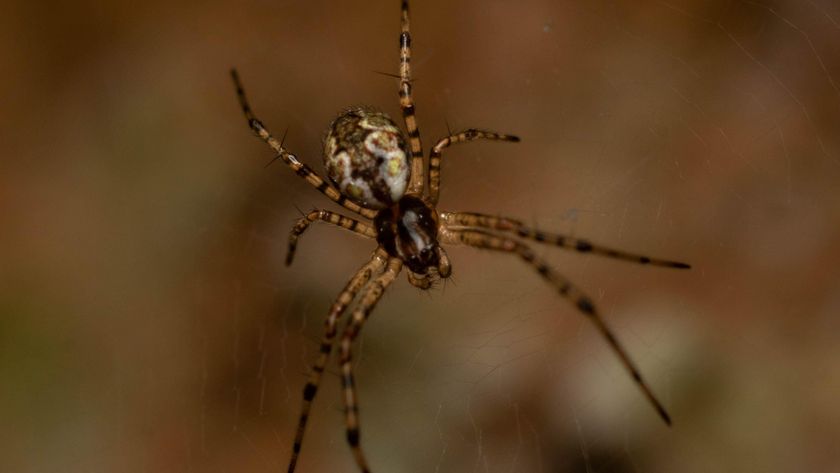
Rules Needed to Protect Endangered Species, Researchers Say

A critical shield for endangered species around the world — an international agreement that keeps tabs on the sales of animals and plants — needs vital reforms if countries actually want to protect wildlife as they want, a group of researchers says.
The worldwide and often illegal trade in wildlife can endanger species, pass infectious diseases across borders and spread destructive, invasive organisms to ecosystems that can't handle them. With 175 member countries, the most important global initiative to monitor and control such traffic is the Convention on International Trade in Endangered Species of Wild Flora and Fauna, known as CITES, which regulates the trade of nearly 34,000 species.
However, serious weaknesses in this initiative have emerged over the years. Urgent changes are needed quickly if world leaders want to preserve Earth's biodiversity into the future, the researchers say.
Trouble in the tropics
For instance, many CITES members fail to monitor and report illegal wildlife trade. Brazil, a key source of illegal animals, does not have a functioning central program to report wildlife confiscations, while the United States, a leading importer of wildlife, lacks a coordinated national authority for monitoring such imports.
In addition, most CITES-listed species occur in the tropics, where governance is often weak and corruption high, the researchers said.
"There is a very well-known ecological trend called the 'latitudinal species gradient,' which basically consists of the inescapable fact that there are many, many more species in tropical areas of the planet," said evolutionary ecologist David Bickford at the National University of Singapore. "If you look across any measure of sociopolitical corruption, there is a similar trend, whereby many, many more countries in the tropics have very high corruption and governance problems that prevent specific kinds of regulations from being effective. International wildlife trade, unfortunately, falls under this rubric."
Sign up for the Live Science daily newsletter now
Get the world’s most fascinating discoveries delivered straight to your inbox.
This lack of regulation ends up harming these countries, and the whole world, Bickford said.
"The sad consequences are that most tropical and poor countries are forfeiting their future for immediate economic benefits," Bickford told OurAmazingPlanet. "In the long run, however, it won't just be those countries that lose — it will be the species driven to extinction, and the rest of humanity who will have fewer resources and a less robust ecosystem from which we ultimately derive almost all of our livelihood needs. This is not a tropical problem — it is a global one."
Call for contributions
At the same time, many CITES members only list animals by their class and not by their species, which can overlook imperiled members of those groups. Also, most CITES data is collected from airports and other easily accessible trade routes, rather than from black markets or public border markets where poaching and illegal wildlife trade usually occurs. A single small-scale trader at an informal border market on the Mekong River in southeast Asia can sell more plants in a single day than reported by CITES over a nine-year period, the researchers noted.
To strengthen the initiative, the researchers call on all CITES members, especially the major wildlife importers, to dramatically increase their contributions to it — as is, the initiative only received $5.2 million annually from 2009 to 2011. The researchers also noted that increased trade levies and penalties for industries and individuals behind such trade should contribute to the initiative's costs, much as how polluters are required to pay for the damage they cause.
"Like so many other seemingly great ideas, this will be very hard to initiate," Bickford said. "For success, all stakeholders will have to agree and 'cheating' the system cannot be tolerated. The time has come for responsibility and integrity to be the precursors of a realistic and sustainable future, and that means that member countries and traders need to step up."
From informal discussions, "I can tell you that there are many parties to the convention that welcome such reform," Bickford said. "These countries would be able to provide leadership and plans for the transitions that need to take place."
Bickford and his colleagues detailed their strategies in the Dec. 24 issue of the journal Science.












